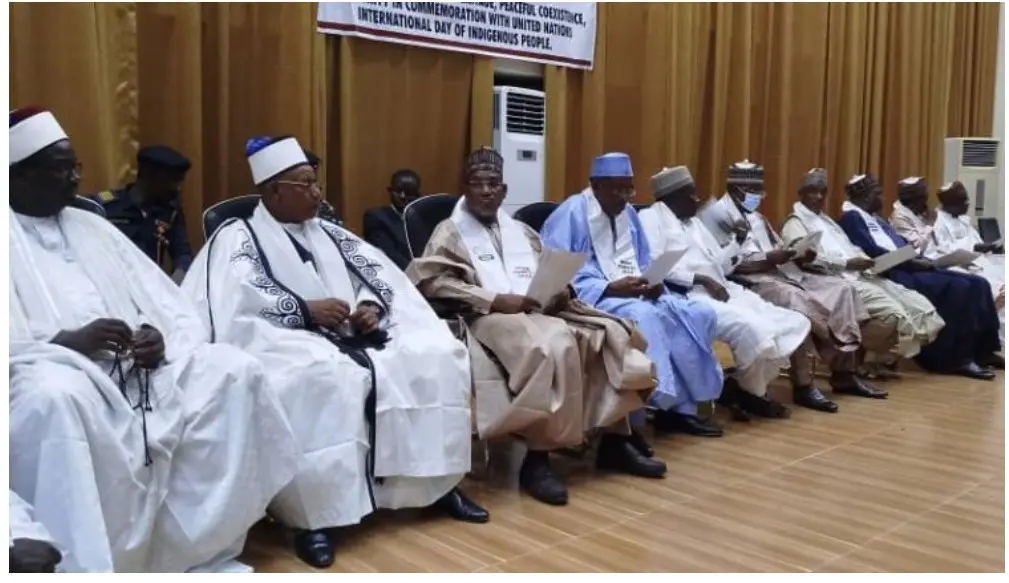A joint Fulani socio-cultural group under the Fulbe Development and Cultural Organisation (FUDECO) has tasked Governor Mai Mala Buni of Yobe State with creating a Ministry of Livestock Development.
According to them, the ministry, if created, will mitigate the perennial conflict between farmers and herders.
The Speaker of the Yobe State House of Assembly, Buba Chiroma-Mashio, and the Chairman of FUDECO in the state, Aliyu Usman Jejere, jointly issued this charge at an event to celebrate, for the first time, the International Day of the World’s Indigenous Peoples in Damaturu, the state capital.
Chiroma-Mashio, who represented Governor Mai Mala Buni, explained that the lack of Western and Islamic education has forced Fulani children to become wayward, which is unethical to the culture and practices of the Fulani people.
“Lack of adequate grazing reserves, encroachment on farmlands, and the obstruction of cattle routes have resulted in clashes between farmers and herders. This is one more reason why the administration of Governor Mai Mala Buni embarked on the construction of the Nazari grazing reserve in the Jakusko local government area and another in the Fika local government area of the state.
“This is due to the regular movement of herders, many of whom have children that are out of school. They need to be sensitized on the importance of enrolling in Nomadic schools,” he said.
In his part, the Chairman of the occasion, who also serves as the Commissioner of Higher Education, Science, Innovation, and Technology in the state, Professor Muhammad Bello Kawuwa, stated that it is time for the Fulani race to unite for the progress of the state and Nigeria as a whole.
He maintained that the exemplary leadership of Governor Buni has continued to foster harmony between the Fulani groups and other ethnic groups, stressing that no meaningful development can be achieved without unity.
The 2024 edition of the International Day of the World’s Indigenous Peoples was themed “Protecting the Rights of Indigenous Peoples in Voluntary Isolation and Initial Contact.”
According to the United Nations, Indigenous Peoples in voluntary isolation and initial contact are the best protectors of the forest.



1 comment
Your point of view caught my eye and was very interesting. Thanks. I have a question for you.